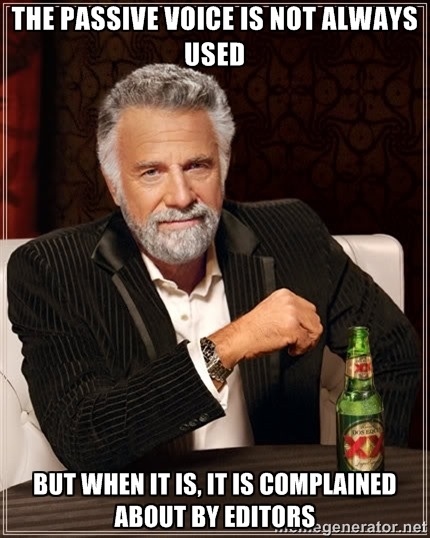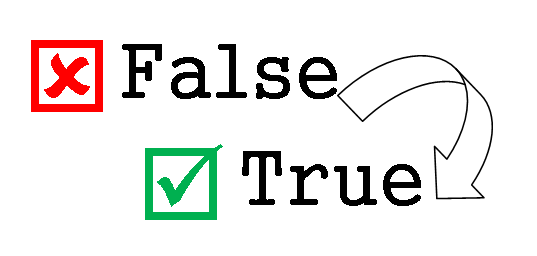… at least in some parts of the country. In other parts, it sprang some time ago. Or is it “sprung some time ago”?
Spring the verb behaves in much the same way as spring the season — irregularly. Regular verbs march in lockstep, all forming their simple past tense by tacking on the easily remembered “ed” at the end. Some examples are laugh (laughed), cough (coughed) and shovel (shoveled).
But irregular verbs are misfits. They march to the beat of their own drum, using whatever past-tense form they feel like. Examples include drink (drank), begin (began) and choose (chose). The lack of any rhyme or reason for their behavior makes application of a rule difficult. That’s why we get questions like “Is it sprang or sprung?”
Read More
Topics:
verbs,
past participle,
regular verbs,
participle,
irregular verbs,
present participle
Thanks to everyone who entered our proofreading quiz last week. Congratulations to Barb Poole, who submitted both the first and the winning entry, missing just four of the 57 errors — even some of the sneaky ones.
The two mistakes that tripped up most people both appeared in paragraph 4: “airways” and “vaccine.” Regarding the first, we have only one airway, which is the area in the throat through which air passes to and from the lungs. The second word should be “vaccination.” Vaccine is the product; vaccination is the process. Consumers can’t “get” a vaccine other than through vaccination, so “vaccination” is the correct term here.
Now for the rest of the answers …
Read More
Topics:
proofreading,
proofreadinq quiz
It’s standard testing time for many schools. But why should students have all the fun? In honor of National Grammar Day on March 4 and National Proofreading Day on March 8, we’re giving you the opportunity to assess your proofreading skills with a little quiz.
We’ve laced the five numbered paragraphs below with errors, some obvious and some a bit sneaky. But they’re all unequivocally wrong. Acceptable variations — such as words with different spellings (e.g., advisor, adviser) or sentences that could be punctuated multiple ways — are not included here.
The figures in parentheses indicate the number of mistakes in each paragraph. Indicate how you would correct the following by providing a corrected version, or do like our editors do and use Word’s Track Changes and Comments features:
Read More
Topics:
proofreading
In Parts 1 and 2 of this series, we talked about ways you can improve the content of your writing. This final installment offers guidance on fine-tuning what you’ve written.
Read More
Topics:
business writing,
writing tips,
10 helpful tips
In last week’s post, we discussed the first three tips relating to how to make the content of your business writing better:
1. Know the purpose of the piece and make it clear up front.
2. Write in plain English.
3. Use active voice.
Below we provide the remaining three tips related to improving content, and in Part 3 we’ll tell you how to fine-tune what you’ve written.
Read More
Topics:
business writing,
writing tips,
legal writing,
public relations writing,
medical writing,
marketing writing,
10 helpful tips
Excellent advice abounds for how to be a better writer in specific fields: public relations/marketing, law, medicine, technology, etc. Despite the nuances specific to those disciplines, certain rules for good business writing apply across the board. Our tips aren’t all-inclusive, but if you follow these guidelines, you’ll improve your business writing exponentially.
We discuss the first six tips, relating to content, today and in Part 2 next week. The third week in Part 3 we'll talk about how to fine-tune what you’ve written.
Read More
Topics:
business writing,
writing tips,
legal writing,
writing for your audience,
public relations writing,
medical writing,
marketing writing
“You are loved.” Writing that in a valentine to your beloved instead of “I love you” likely will have a similar effect as giving a bouquet of roses with petals that are curling and turning brown — the thought may be there, but the desired effect loses some of its impact.
That’s what can happen with passive voice. Who is actually doing the action becomes hazy. Sometimes you want or need the subject to be ambiguous or want to emphasize the object, in which case passive constructions make sense.
Read More
Topics:
passive voice
This note accompanied a recent job submitted to ProofreadNOW.com: “Please check for any blaring errors.” And this excerpt appeared in another job: “Two witnesses must be present when you sign your advanced directive.”
Encountering a word that’s similar to the one that belongs but isn’t quite right is like stepping on a slippery object while walking in a murky lake — you know you’re not on solid ground but aren’t sure why.
Sometimes the answer is obvious, as in the first example, in which “blaring” (a loud and unpleasant sound) should be “glaring” (obvious or noticeable). Sometimes it’s less so. We see the error in the second example quite a bit at ProofreadNOW.com. “Advanced” means developed beyond an initial stage. “Advance” is the correct term here, meaning “made, sent or provided at an early time.”
Read More
Topics:
word choices,
common mistakes,
misused words
The new year is an absolutely perfect time to make new beginnings in many areas, including your writing. In the same way you might clear out and unclutter your house or apartment, you can rid your writing of redundancies, tautologies and pleonasms — those repetitive words and phrases that include but are not limited to extra words that say the same thing (e.g., begin anew, free gift), words used with acronyms that are part of the acronym (e.g., PIN number, UPC code) and superlatives used for emphasis (e.g., absolutely perfect). The end result will be a positive improvement in your writing, making it tighter, much more concise and infinitely clearer.
Read More
Topics:
business writing,
financial writing,
legal writing
Because January is a big month for exercise resolutions, our posts this month focus on whipping your writing into better shape.
Read More
Topics:
business writing,
technical writing,
government writing,
financial writing,
scientific writing,
legal writing











